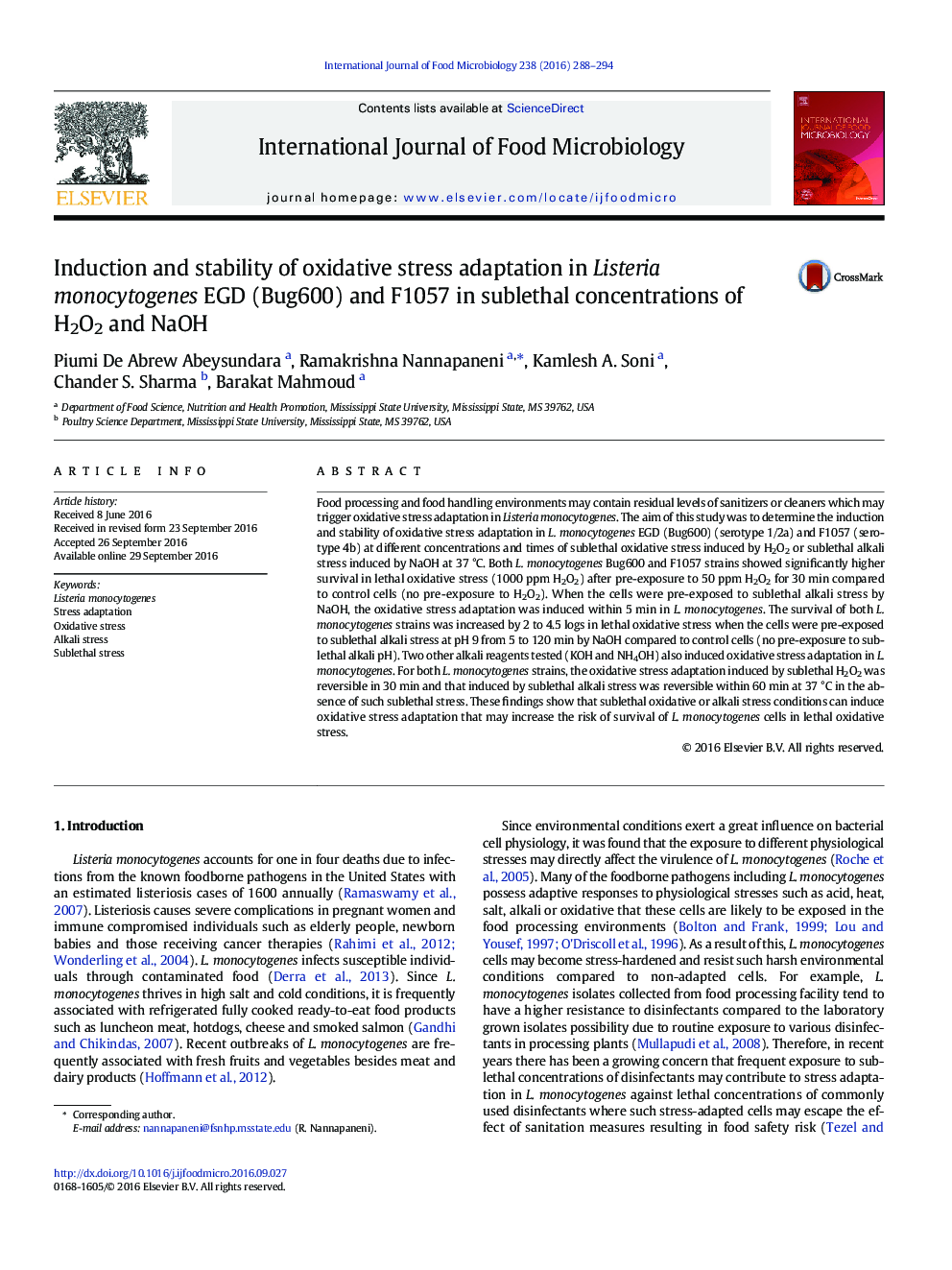| Article ID | Journal | Published Year | Pages | File Type |
|---|---|---|---|---|
| 4366145 | International Journal of Food Microbiology | 2016 | 7 Pages |
•There was an increase in survival of Listeria monocytogenes in lethal oxidative stress when the cells were pre-exposed to sublethal oxidative stress or sublethal alkali stress.•Oxidative stress adaptation was induced in L. monocytogenes within 30 min at 37°C in the presence of 50 to 100 ppm H2O2.•Oxidative stress adaptation was induced in L. monocytogenes within 5 min at 37°C in the presence of sublethal alkali stress at pH 9 by NaOH.•Sublethal H2O2 induced oxidative stress adaptations was completely reversible within 30 min while that induced by sublethal alkali was completely reversible within 60 min in the absence of such corresponding sublethal stress.
Food processing and food handling environments may contain residual levels of sanitizers or cleaners which may trigger oxidative stress adaptation in Listeria monocytogenes. The aim of this study was to determine the induction and stability of oxidative stress adaptation in L. monocytogenes EGD (Bug600) (serotype 1/2a) and F1057 (serotype 4b) at different concentrations and times of sublethal oxidative stress induced by H2O2 or sublethal alkali stress induced by NaOH at 37 °C. Both L. monocytogenes Bug600 and F1057 strains showed significantly higher survival in lethal oxidative stress (1000 ppm H2O2) after pre-exposure to 50 ppm H2O2 for 30 min compared to control cells (no pre-exposure to H2O2). When the cells were pre-exposed to sublethal alkali stress by NaOH, the oxidative stress adaptation was induced within 5 min in L. monocytogenes. The survival of both L. monocytogenes strains was increased by 2 to 4.5 logs in lethal oxidative stress when the cells were pre-exposed to sublethal alkali stress at pH 9 from 5 to 120 min by NaOH compared to control cells (no pre-exposure to sublethal alkali pH). Two other alkali reagents tested (KOH and NH4OH) also induced oxidative stress adaptation in L. monocytogenes. For both L. monocytogenes strains, the oxidative stress adaptation induced by sublethal H2O2 was reversible in 30 min and that induced by sublethal alkali stress was reversible within 60 min at 37 °C in the absence of such sublethal stress. These findings show that sublethal oxidative or alkali stress conditions can induce oxidative stress adaptation that may increase the risk of survival of L. monocytogenes cells in lethal oxidative stress.
